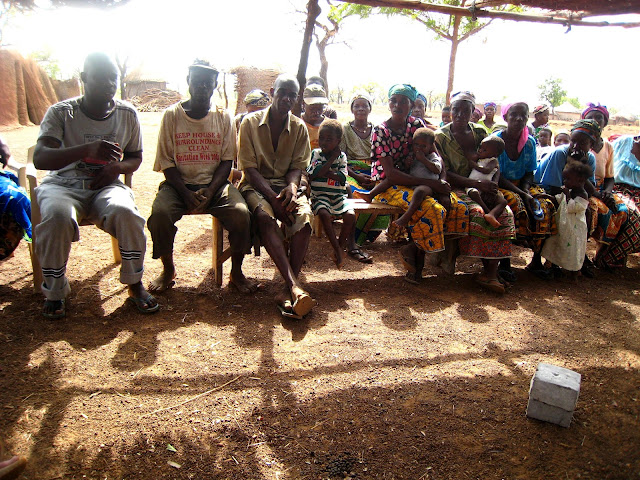In the region surrounding Maradi, the Evangelical Church
In these villages, the church’s pastors and evangelist can be the only residents with a formal education. As a result, many people – both Christian and Muslim – come to them in order to learn to read and write. There is a great need for this, in a country where the literacy rate is estimated to be only 29% nationwide.
While almost none of these pastors and evangelists have training in literacy education, teaching people to read and write Hausa, the indigenous language of the region, has become a large part of their job. The EERN has even begun to see literacy education as an important means of evangelism.
First and foremost, the goal is to teach people to read and write. But at the same time, literacy education is a way to spread the Good News of the Gospel of Jesus Christ. The Bible is often the only book available in West African languages, and therefore it becomes a good tool for literacy education.
While a small number of people embrace Christianity after going through these literacy programs, most remain in their Muslim faith. But the effort has created an incredible amount of goodwill for the church. The church is seen as a place that is willing to help its neighbors, regardless of their faith. And because of this, there is a much increased interest in Jesus and his teachings.
Without a doubt, the EERN is laying a strong foundation, both for the future growth of the church and for the holistic development of Niger Niger
The Presbyterian Church (USA) is looking for ways to support the EERN in its literacy and evangelism efforts. The EERN is also a church that would love to grow its connections with the PC(USA). If you are interested, there are wonderful opportunities for friendship and partnership.
--------------------
This time of year in West Africa, countries like Ghana , Nigeria , and especially Niger Sahara desert in the north, and as it blows south, it brings with it a fine layer of dust that covers everything in sight. Daytime can be hot, but the night is often cool from the lack of humidity. The harmattan begins in early to mid-December and can last through February or March.
To me, it’s striking how the land in Niger
The transition of seasons in West Africa evokes for me the images in Isaiah 35, a common lectionary reading in the Advent season:
The wilderness and the dry land shall be glad, the desert shall rejoice and blossom; like the crocus it shall blossom abundantly, and rejoice with joy and singing.
Later in chapter 35, Isaiah continues with this message of hope:
For waters shall break forth in the wilderness, and streams in the desert; the burning sand shall become a pool, and the thirsty ground springs of water; the haunt of jackals shall become a swamp, the grass shall become reeds and rushes.
And the ransomed of the LORD shall return, and come to Zion
Although it’s the dry season right now, people are already looking forward to the spring, when rains will begin to fall once again. In the same way, we look expectantly to the future, but know already that God is doing wonderful things among the people and churches of West Africa .
-Josh
--------------------









































